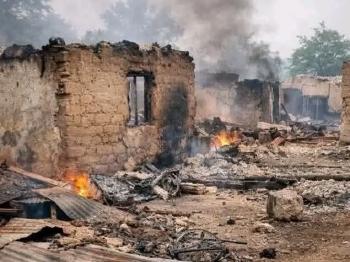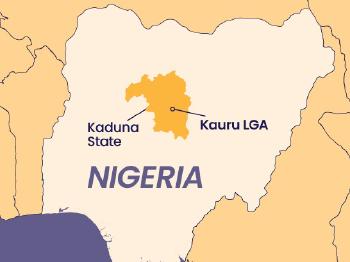Four years on from the abduction of the “Chibok girls”, over 100 are still thought to be held by Boko Haram, while those who have been released continue to suffer following their ordeal.
On 14 April 2014, Boko Haram terrorists kidnapped 276 mainly Christian schoolgirls from a government secondary school in Chibok, north-east Nigeria. Many of the girls had travelled to the school from the surrounding area to sit their end of term exams. Their abduction caused international outcry and led to a global social media campaign to #BringBackOurGirls.

Although international media attention soon moved on, reports began to emerge from a small number of girls who escaped that those held captive were being forced into marriage, while Boko Haram released videos of the girls in Islamic dress.
In October 2016, Boko Haram released a first group of 21 of the girls, followed by a further 82 in May 2017; some were pregnant, while others had given birth to children fathered by Boko Haram terrorists. The Nigerian government has repeatedly denied rumours that prisoners or a ransom were exchanged to secure their release. For several months, the released girls were prevented from returning home and only permitted occasional visits from their family, while they underwent a government rehabilitation programme. The majority are now studying at the American University of Nigeria in Yola, where the government is paying their student fees.
But the Nigerian government has been accused of “abandoning” the girls, after choreographing the publicity of their release.
Naomi Adamu, now 27 years old, was one of the senior students of the group who was kidnapped. She still suffers from ill health due to injuries inflicted on her during captivity, but her family say that the American University of Nigeria, where she is enrolled, and the government, are both refusing to pay for ongoing medical care.
Naomi recalls being badly treated for refusing to marry one of the terrorists: "Every day, they beat us. They tell us to marry and if you refuse, they will beat you. We will wash cloth, fetch water, do everything for their wives. We were slaves." Some of the girls were whipped to persuade them to marry.
While in captivity, Naomi and a few other girls kept secret diaries in exercise books they were given for Quran lessons. The Christian girls were under constant pressure to convert to Islam. On one occasion, the terrorists separated the Christians from the Muslims. One of the girls later wrote, "Then we saw a jerrycan … so we thought it was petrol. Then they said, 'Who and how many of you will turn to Muslim.' So many of us [did], because of fear … [they said] 'The rest that remain you want to die, is that why you don't want to be Muslim? We are going to burn you.’ … Then they give us that jerrycan which we thought it was petrol. It is not petrol, it is water."
Most of the “Chibok girls” are now young women, but the scars of their captivity still linger. Over 100 have not been released, while Boko Haram claim others have died since their abduction.

